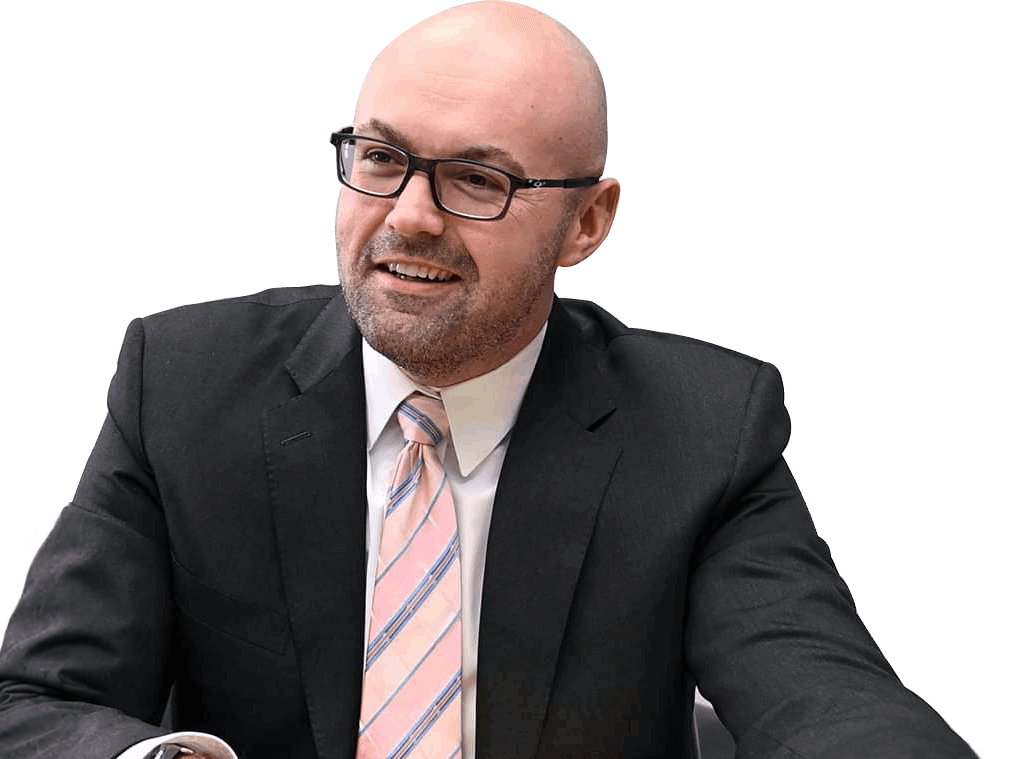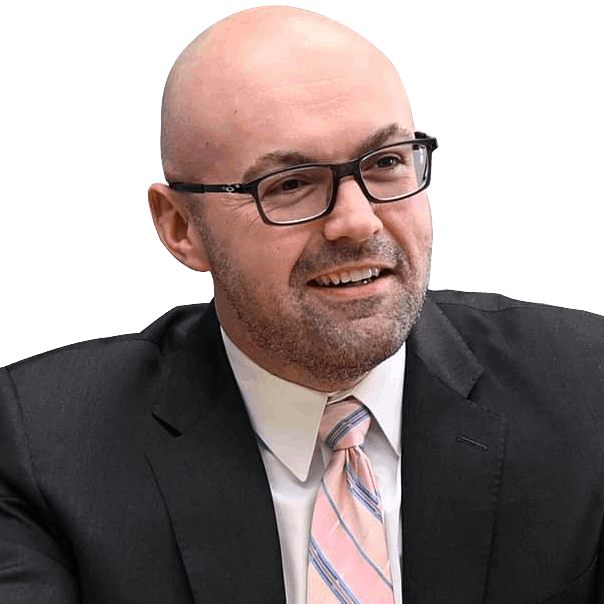Chinatown residents depend on renowned institutions—Mercy Hospital & Medical Center, the University of Illinois Hospital & Health Sciences System, and Rush University Medical Center—for emergency care, surgeries, and advanced diagnostics, but even these top-tier facilities can falter under overcrowded ERs during commuting and festival surges, lab and imaging delays from CTA Red Line interruptions, equipment malfunctions in high-volume cath labs and ICUs, and rushed discharges amid understaffed night shifts, leading to compromised cardiac monitoring, orthopedic repairs, stroke evaluations, and more; Chicago Injury Lawyer represents those harmed by such systemic failures, combining deep local insight with tenacious legal advocacy to secure the compensation they deserve.
Call us now at 312-261-5656 for a free, no-obligation consultation, available 24/7. With our no-fee-unless-we-win policy, you can focus on your recovery while we handle the rest.
Why Hospital Negligence Happens in Chinatown, IL
Several interrelated breakdowns contribute to avoidable medical errors in Chinatown’s healthcare network:
- Peak-volume surges: Events on South Archer Avenue and tourist flows to Ping Tom Memorial Park strain triage and bed capacity at Mercy’s ED.
- Off-hour staffing gaps: Nights and weekends often run lean in telemetry and ICU units, making it more likely that early warning signs—like irregular heart rhythms—are overlooked.
- Communication lapses: Incomplete hand-off reports between Chicago Fire Department EMS crews and on-call specialists at UIC or Rush can result in lost lab orders or medication schedules.
- Protocol shortcuts in sterilization: High turnover in surgical suites may lead to rushed instrument reprocessing, elevating the risk of hospital-acquired infections such as MRSA or C. difficile.
- EHR transcription errors: Rapid charting under pressure—without robust double-check procedures—can produce incorrect medication dosages or missed allergy alerts.
- Language and cultural barriers: Chinatown’s primarily Chinese-speaking population may face misunderstandings of consent forms or discharge instructions, compounding risks of miscommunication.
Types of Hospital Negligence Cases
Our attorneys handle a broad spectrum of hospital negligence claims for Chinatown residents, including:
- Hospital-acquired infections: Sepsis, pneumonia, or bloodstream infections from contaminated devices or lapses in hygiene protocols.
- Medication errors & charting mistakes: Overdoses, underdoses, or allergic reactions caused by flawed EHR entries, manual transcription oversights, or nursing misadministration.
- Misdiagnoses & delayed treatment: Failure to recognize heart attacks, strokes, pulmonary embolisms, or sepsis in a timely manner, leading to irreversible organ damage or neurological deficits.
- Surgical errors: Wrong-site operations, retained foreign objects, anesthesia dosing mishaps, and equipment malfunctions in inpatient and outpatient operating rooms.
- Diagnostic testing errors: Misread X-rays, CT scans, MRIs, or lab results that lead to inappropriate or delayed care plans.
- Patient handling injuries: Falls from improperly maintained beds or faulty transfer equipment, pressure ulcers from inadequate repositioning, and lift-related musculoskeletal injuries.
- Informed consent failures: Insufficient explanation of procedural risks—particularly for complex cardiac catheterizations or neurosurgeries—undermines patients’ ability to make truly informed decisions.
Severe Injuries Caused by Hospital Malpractice
When hospitals breach the standard of care, victims can suffer life-altering harm, including:
- Sepsis & bloodstream infections, requiring multiple revision surgeries, prolonged ICU stays, and extended antibiotic regimens.
- Permanent brain damage from delayed stroke intervention or anesthesia complications, leading to cognitive impairment and loss of independence.
- Wrongful amputations due to unrecognized compartment syndrome or vascular injuries necessitate prosthetics and lifelong rehabilitation.
- Internal organ perforations during minimally invasive procedures, sometimes undetected until catastrophic complications arise.
- Fatal outcomes occur when preventable errors deprive patients of timely, life-saving treatment.
For injuries sustained during surgery, contact our surgery malpractice attorney to explore your legal options and pursue full compensation for your losses.
Your Legal Rights After Hospital Negligence in Chinatown, IL
Under Illinois law, you typically have two years from the date you discover the injury to file a medical malpractice claim, though exceptions (for minors or latent-injury cases) may extend this deadline. Chinatown claims are filed in the Cook County Circuit Court, usually at the Richard J. Daley Center. Our comprehensive approach includes:
- Obtaining your complete medical records, including ER logs, surgical and anesthesia reports, nursing charts, imaging studies, and any incident investigations.
- Retaining leading medical experts, from board-certified physicians to specialty consultants, to determine whether your care fell below accepted standards and to provide authoritative testimony.
- Preparing the mandatory certificate of merit, signed by a qualified physician, affirming that your claim has merit under Illinois malpractice statutes.
- Issuing pre-suit notices when required and negotiating assertively with hospital defense teams and insurers to seek fair settlements.
- Advocating zealously in court if litigation becomes necessary, ensuring your full damages—past and future medical expenses, lost wages, and non-economic losses—are fully presented.
For complex diagnostic cases—where earlier recognition of symptoms could have prevented harm—consult our diagnostic error attorney for specialized representation in proving causation and liability.
What to Do If You Suspect Hospital Negligence
Prompt action preserves evidence and strengthens your claim:
- Request your full medical records in writing from each facility’s Health Information Management department, covering all physician, nursing, and diagnostic reports.
- File a formal complaint with the Illinois Department of Public Health to document systemic safety issues and trigger regulatory oversight.
- Maintain a detailed injury journal, logging dates, times, symptoms, staff interactions, and any lapses in care or communication.
- Photograph visible injuries—such as surgical sites, bruises, or pressure ulcers—and retain all physical evidence: dressings, discharge instructions, and medication containers.
- Contact an experienced malpractice attorney immediately; early legal involvement ensures deadlines are met, evidence is safeguarded, and your claim is filed timely.
Why Choose Our Chinatown, IL Hospital Negligence Lawyers
Pursuing a medical malpractice claim against large healthcare institutions demands both legal expertise and hyper-local insight. Our firm provides:
- Proven Chicago-area track record, securing multi-million-dollar verdicts and settlements against major hospitals and their insurers.
- Intimate knowledge of Chinatown EMS coordination, from CTA Red Line logistics to Chicago Fire Department protocols for South Side transfers.
- Comprehensive case management, from expert retention and depositions to settlement negotiations—so you can focus on your recovery.
- Contingency-fee arrangements, meaning no attorneys’ fees unless we recover compensation on your behalf—our success depends on yours.
- Compassionate, client-centered advocacy, recognizing the profound physical, financial, and emotional toll of medical negligence.
- Multilingual support, offering guidance in English, Mandarin, Cantonese, and other languages common in Chinatown’s diverse community.
EXCELLENTTrustindex verifies that the original source of the review is Google. I can't stress enough how grateful I am that we hired Paul Marriett to help us with our case. His communication was not only timely and thorough but also understandable. He did a phenomenal job guiding us through the process and preparing us for the courtroom, which put our minds at ease. Once our hearing came, he did his job flawlessly and won our case. Additionally, he was quite pleasant to speak with when our judge was behind schedule and while the court was in recess. I highly recommend him to anyone needing an attorney and will reach out again in the future should we ever need representation.Trustindex verifies that the original source of the review is Google. Very professional and helpful! I would recommend to all my friends and family to hire him. He was eager to know the circumstances of my case even before I hired him. I did contact other lawyers and offices, but none came close to the comfort I felt while talking to Mr. Marriertt, I really felt like he cared about the situation I found myself in. He deserves 6 stars for going above and beyondTrustindex verifies that the original source of the review is Google. Paul helped me out with a traffic citation. The communication was great as he walked me through my options and what to expect with my court date and plea deal. 10/10 service. Highly recommended. Thanks again, Paul.Trustindex verifies that the original source of the review is Google. Paul was very professional, sharp dressed and clearly a notch above most in the courtroom. He understood my plight and refused to be bullied. Knows the law to a T....I'm keeping him on speed dial. I think u will trust him too.Trustindex verifies that the original source of the review is Google. BEYOND satisfied with the services & representation! The communication & efforts have been above & BEYOND! Amazing price as well for a minor traffic hiccup. 11/10 recommend & prefer this firm for any future occurrences!!! Very transparent, & puts in the effort to help you!!!Trustindex verifies that the original source of the review is Google. If you are needing a lawyer in Rockford or the surrounding areas this is the guy you need to get ahold of! Do not waste your time or money going to someone else.... From the very start Mr. Marriett was on top of his job. I called several lawyers before him and he was the first to thoroughly explain everything I needed to hear without even asking him to. The definition of a great lawyer. Each time we went to court he always let me know ahead of time either in person or via phone what the expectations or options would be going in. I highly recommend Paul Marriett if you are in need of a lawyer!Trustindex verifies that the original source of the review is Google. Explained everything well. Kept us informed. I'm glad we found him.Trustindex verifies that the original source of the review is Google. I am very late on sharing my feedback only because I’m google illiterate. Attorney Merriett did a very smart excellent job for me and not real expensive considering how stupid I was to get in trouble . Thank you! For all your professionalism! Bruce P.Trustindex verifies that the original source of the review is Google. Great service and a reliable lawyer. I'm glad we got him instead of getting anyone else. :)
Get Directions to Our Law Office
Visit us in Chicago for a free consultation
- Address: 101 N Wacker Drive, Suite 100B, Chicago, IL 60606 Get Directions
- Driving Directions: If you’re traveling from The Loop, head north on Wacker Drive. Our office is between Lake and Randolph Streets, easily accessible from I-90 and I-94.
- Parking Options: Convenient parking is available at nearby garages, such as the Wacker & Monroe Garage, and there are metered spaces along N Wacker Drive.
- Landmarks Nearby: Our office is just steps from the Chicago Riverwalk and close to The Loop, making it a convenient location for visitors.
Contact Us
Chicago Injury Lawyers
101 N Wacker Drive, Suite 100B
Chicago, IL 60606
Phone: (312) 261-5656
Email: contact@chicagoinjurylawyer.com
Hours: 24/7
Frequently Asked Questions About Hospital Negligence in Chinatown, IL
How do I file a formal complaint against a hospital serving Chinatown, IL?
Submit a grievance to the Illinois Department of Public Health’s Division of Health Facilities and Programs online or by mail. You can also contact patient relations or risk management at facilities such as Mercy Hospital or UIC for their internal complaint procedures.
Where are malpractice lawsuits filed for Chinatown residents?
Medical negligence claims are filed in the Cook County Circuit Court at the Daley Center. After filing, your case proceeds through pre-trial motions, discovery (including expert depositions), and may involve mandatory mediation before trial.
What medical records should I request to support my claim?
Obtain your complete inpatient and outpatient files: ER and surgical notes, nursing and medication administration logs, diagnostic imaging (X-rays, CT scans, MRIs), lab results, discharge summaries, and any incident investigation documents.
Can a hospital’s accreditation status affect my negligence claim?
Yes. Accreditation by bodies like The Joint Commission mandates strict safety and quality protocols. Proving a facility’s failure—such as lapses in sterilization or equipment maintenance—can significantly strengthen your claim.



